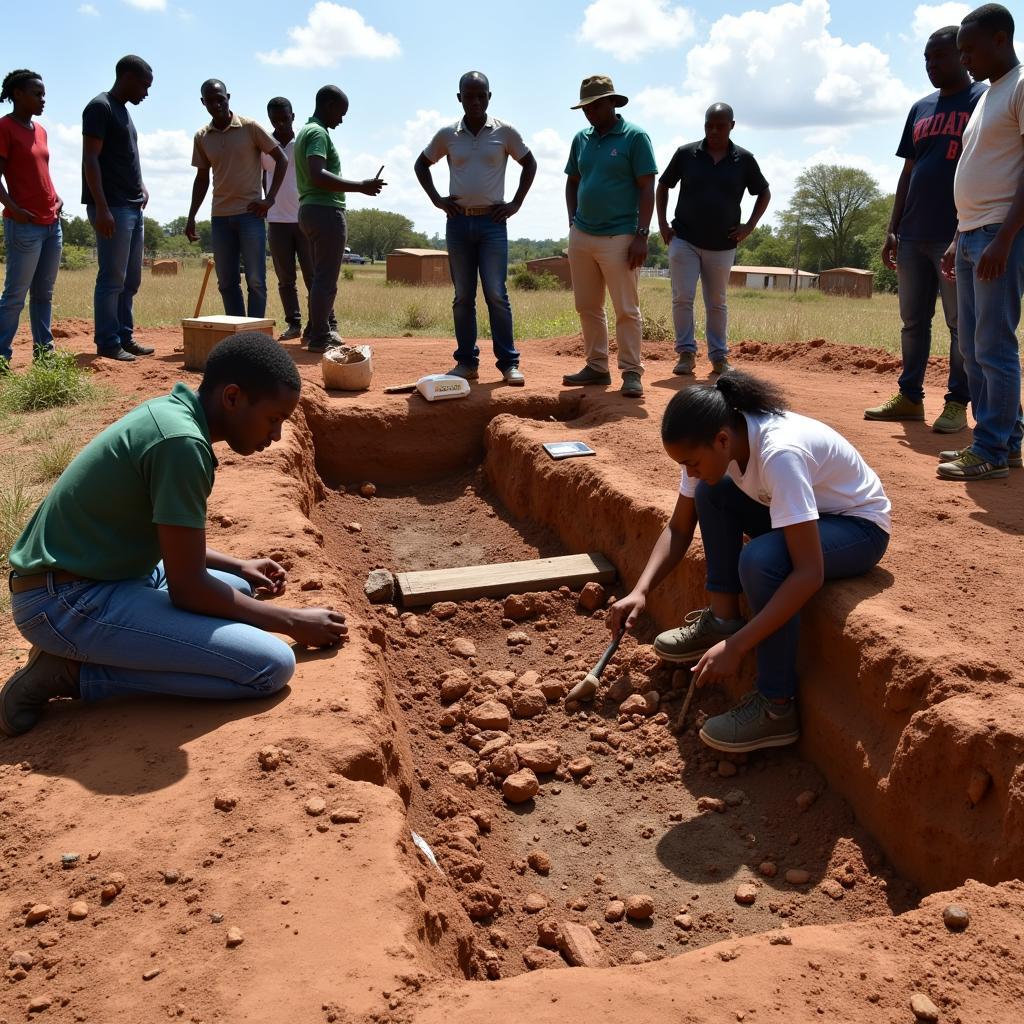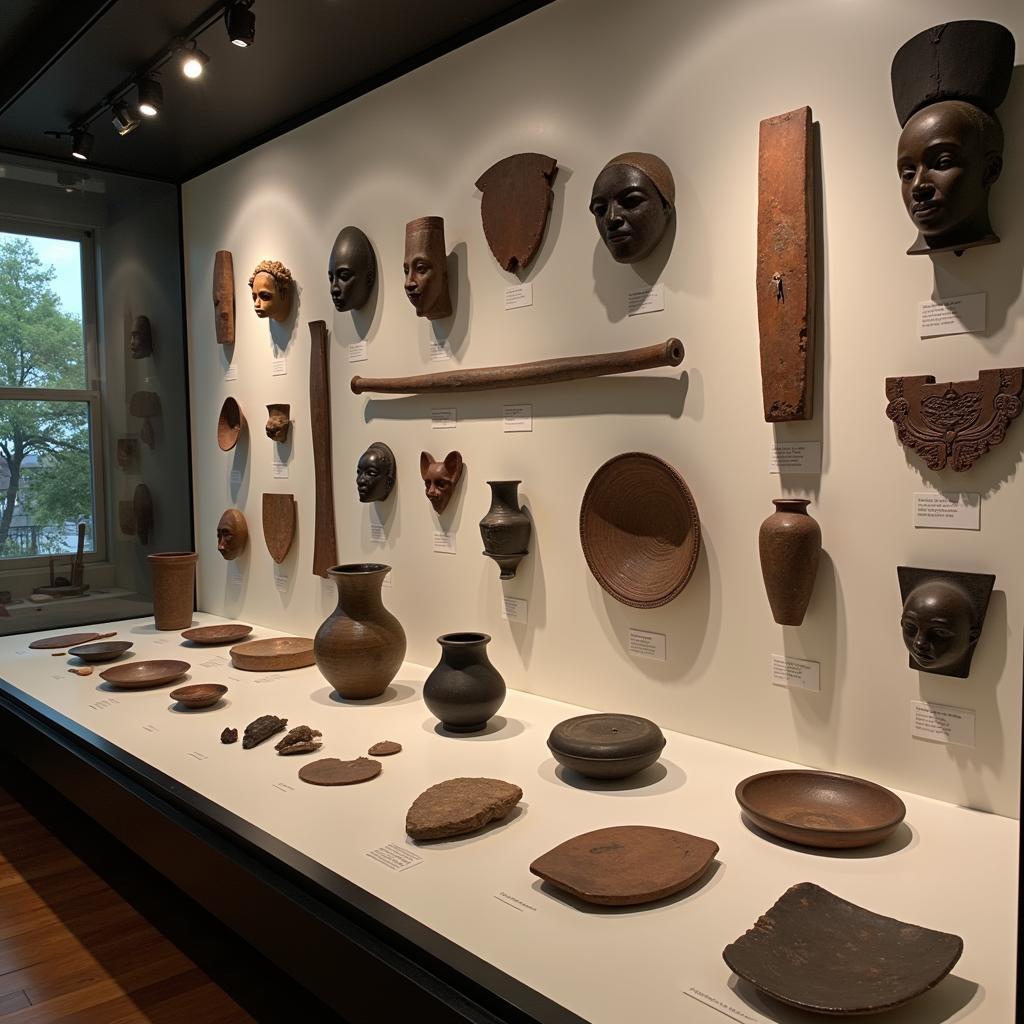Uncovering Histories: The African Diaspora Archaeology Network
The African Diaspora Archaeology Network is crucial for understanding the complex and often untold stories of forced migration and cultural resilience. It connects researchers, scholars, and communities to explore the archaeological record of African descendants across the globe. This network facilitates collaboration, knowledge sharing, and the development of new methodologies for investigating the material culture of the diaspora.
The Significance of the African Diaspora Archaeology Network
The African Diaspora Archaeology Network plays a vital role in illuminating the experiences of millions of Africans and their descendants. By focusing on the tangible remnants of their lives, from plantation sites in the Americas to maroon communities in the Caribbean, the network provides invaluable insights into their struggles, adaptations, and cultural continuity. This archaeological work challenges traditional historical narratives, often centered on colonial perspectives, and amplifies the voices of those who were historically silenced.
The network also fosters ethical archaeological practices, emphasizing community engagement and collaboration with descendant communities. This approach ensures that research is conducted respectfully and that the knowledge gained benefits the communities whose ancestors are being studied. It recognizes that these communities are not simply subjects of study but active participants in the interpretation of their own past.
 Archaeological Excavation at an African Diaspora Site
Archaeological Excavation at an African Diaspora Site
Connecting the Dots: Research and Collaboration through the Network
The network’s emphasis on collaboration is one of its greatest strengths. By connecting researchers working in diverse geographical locations and on various aspects of the diaspora experience, it facilitates the sharing of best practices, methodologies, and research findings. This collaborative approach allows for a more comprehensive and nuanced understanding of the African diaspora as a global phenomenon. The network also supports the development of new technologies and approaches to archaeological research, tailored to the specific challenges and opportunities presented by diaspora studies. For instance, innovative techniques in bioarchaeology and isotopic analysis are helping researchers trace ancestry and migration patterns.
One crucial aspect of the network’s work is its focus on training the next generation of diaspora archaeologists. Mentorship programs and workshops provide emerging scholars with the skills and knowledge necessary to conduct ethical and impactful research. This focus on capacity building ensures the long-term sustainability of the field and the continued growth of the network.
What is the African Diaspora Archaeology Network’s Primary Goal?
The primary goal of the African Diaspora Archaeology Network is to promote research, preservation, and education related to the archaeology of the African diaspora. It aims to create a global community of scholars, researchers, and descendant communities working together to uncover and interpret the material culture of African descendants around the world.
 Collection of African Diaspora Artifacts in a Museum
Collection of African Diaspora Artifacts in a Museum
Exploring African Diaspora Communities Through Archaeology
Archaeological investigations of diaspora communities reveal a wealth of information about their daily lives, cultural practices, and resistance to oppression. Excavations of plantation sites, for example, can uncover evidence of the living conditions of enslaved Africans, their strategies for maintaining cultural identity, and their acts of resistance. Similarly, studies of maroon communities in the Caribbean and South America have shed light on the creation of independent societies and the preservation of African traditions.
These archaeological findings challenge simplistic narratives of enslavement and forced migration. They highlight the agency and resilience of African people in the face of adversity and their enduring contributions to the cultural landscapes of the Americas and beyond. The African Diaspora Archaeology Network is instrumental in facilitating these important discoveries and sharing them with a wider audience.
The Future of the African Diaspora Archaeology Network
The future of the African Diaspora Archaeology Network lies in its continued commitment to collaboration, community engagement, and innovative research. As new technologies and methodologies emerge, the network will be at the forefront of applying them to the study of the African diaspora. Furthermore, the network will continue to play a vital role in educating the public about the rich and complex history of the African diaspora, fostering greater understanding and appreciation for the contributions of African descendants worldwide.
Conclusion
The African Diaspora Archaeology Network is an essential resource for anyone interested in learning more about the history and legacy of the African diaspora. By connecting researchers, scholars, and communities, the network fosters collaboration, promotes ethical research practices, and provides valuable insights into the lives and experiences of African descendants across the globe. Through its ongoing work, the network continues to illuminate the rich and complex story of the African diaspora.
FAQ
- What is the main focus of the African Diaspora Archaeology Network? (The network focuses on the archaeological study of African descendant communities worldwide.)
- How does the network contribute to understanding the African diaspora? (It provides insights into the lives, cultures, and resistance of African descendants through archaeological research.)
- Why is community engagement important for the network? (It ensures respectful research and allows descendant communities to participate in interpreting their own history.)
- What are some examples of sites studied by diaspora archaeologists? (Plantation sites, maroon communities, and urban settlements with African diaspora populations.)
- How can I get involved with the African Diaspora Archaeology Network? (Information on membership, participation, and resources can be found on the network’s website.)
- What are some of the ethical considerations in African diaspora archaeology? (Respect for ancestral remains, collaboration with descendant communities, and responsible storytelling are crucial ethical considerations.)
- What are some future directions for research in African diaspora archaeology? (Exploring new technologies like DNA analysis and further community-engaged projects are promising future directions.)
Need support? Contact us 24/7: Phone: +255768904061, Email: kaka.mag@gmail.com, or visit us at: Mbarali DC Mawindi, Kangaga, Tanzania. We’re here to help.

